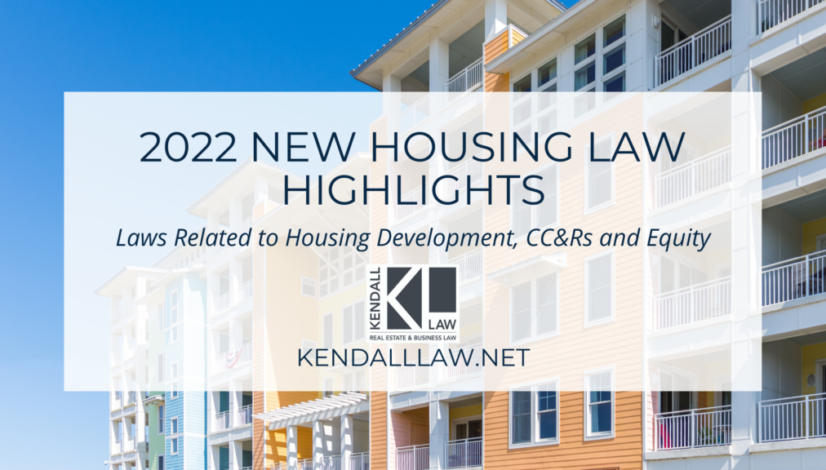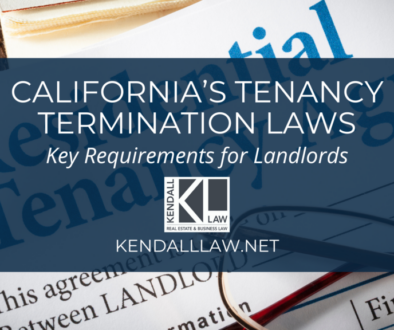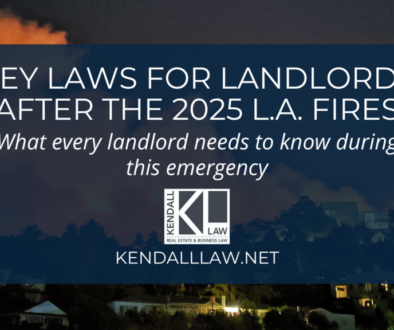2022 New Housing Law Highlights: Laws Related to Housing Development, CC&Rs and Equity
Effective January 1, 2022, there are a number of laws that impact housing development, density, planning and rental housing. Kendall Law has provided some of the highlights of these laws and how they impact real estate professionals, landlords, tenants, property managers, housing developers, real estate investors and property owners.
LAWS TO STREAMLINE APPROVAL OF DEVELOPMENT
SB 8 extends provisions of the Housing Crisis Act of 2019
The Housing Crisis Act of 2019 (SB 330) 1) limits a locality’s ability to prolong the housing approval process, 2) gives housing applicants an opportunity to invoke vesting rights against later-adopted changes to local ordinances, 3) limits cities’ ability to impose or enforce housing caps and development moratoria and 4) requires developers who demolish existing housing to provide replacement housing and relocation benefits. It was set to sunset in 2025.
SB 8 extends the provisions of the law that prohibits cities from conducting more than five hearings on an application as well as the provisions that provide vesting rights for housing projects that submit a qualifying “preliminary application” until 2034.
SB 8 extends until 2030 provisions that limit localities’ authority to impose shifting requirements as part of application “completeness” review, as well as provisions that require localities to render any decision about whether a site is historic at the time the application for the housing development project is deemed complete.
LAW RELATING TO COVENANTS, CONDITIONS AND RESTRICTIONS
AB 721 Covenants That Limit Residential Development Rendered Unenforceable Against Affordable Housing Developments
AB 721 makes recorded covenants that limit residential development unenforceable against qualifying affordable housing developments. The law makes any recorded CC&Rs that restricts the number, size or location of residences that may be built on a property, or that restricts the number of persons or families who may reside on a property, enforceable against the owner of a 100 percent below market rate housing development that is affordable to lower-income households.
LAWS RELATED TO EQUITY, FAIR HOUSING AND BMR HOUSING
AB 1043 Adding “Acutely Low Income” Households to Affordable Housing Law
Currently there are low income, very low income, and extremely low income households – this law adds a new subset of Acutely Low Income Households, who earn 15 percent of Area Median Income (AMI) and whose rents can be no greater that 30 percent of the 15 percent AMI level.
The nature of these bills will inevitably lead to serious questions and complex legal matters. Here at Kendall Law, we specialize in handling complex real estate and legal matters.
For more highlights of new housing laws in 2022, see also:
LAWS RELATING TO RENTAL HOUSING
Contact Kendall Law for answers to your legal questions regarding these new laws. Contact us or call (310) 619-4941.
Author: Eileen Kendall





